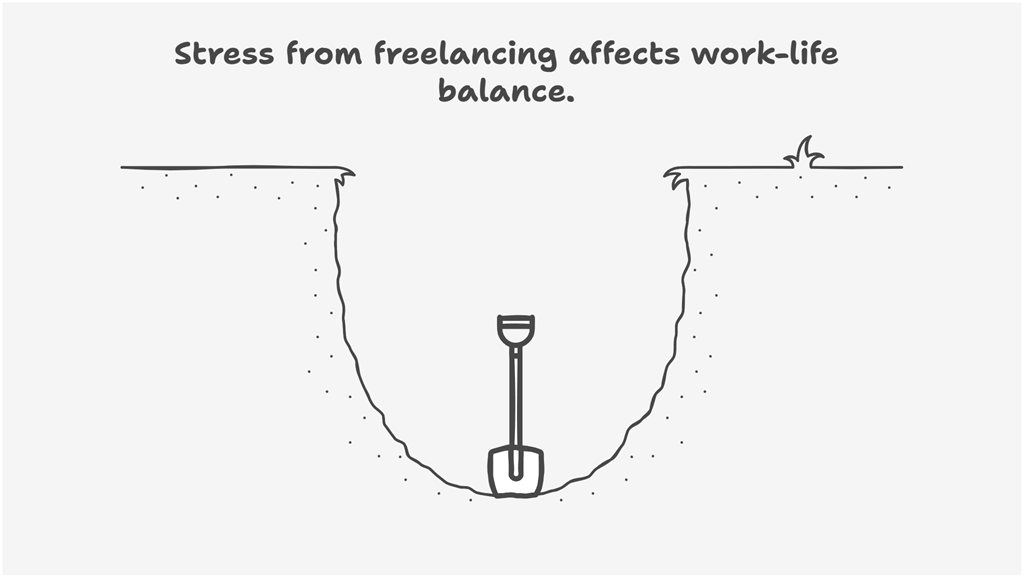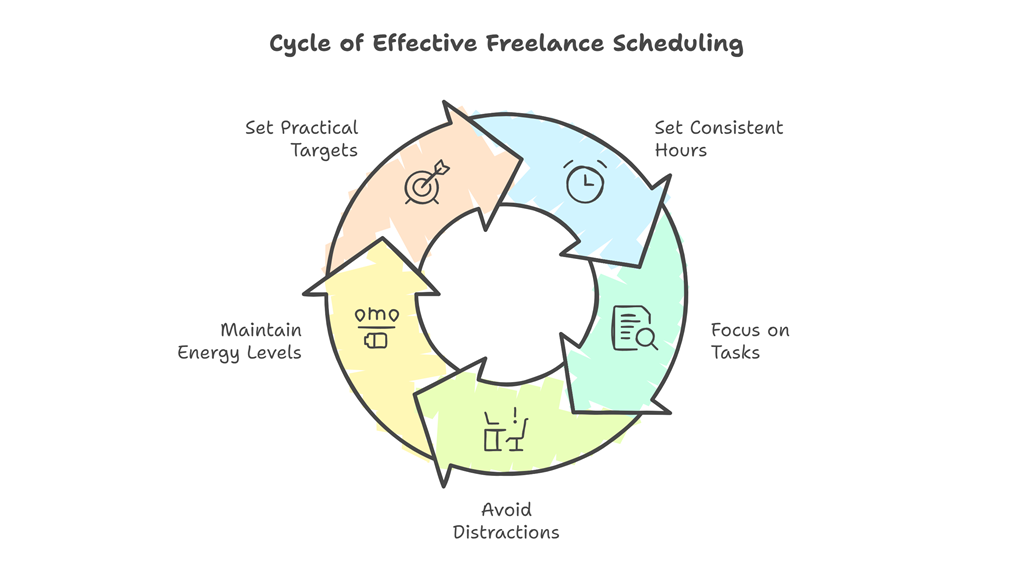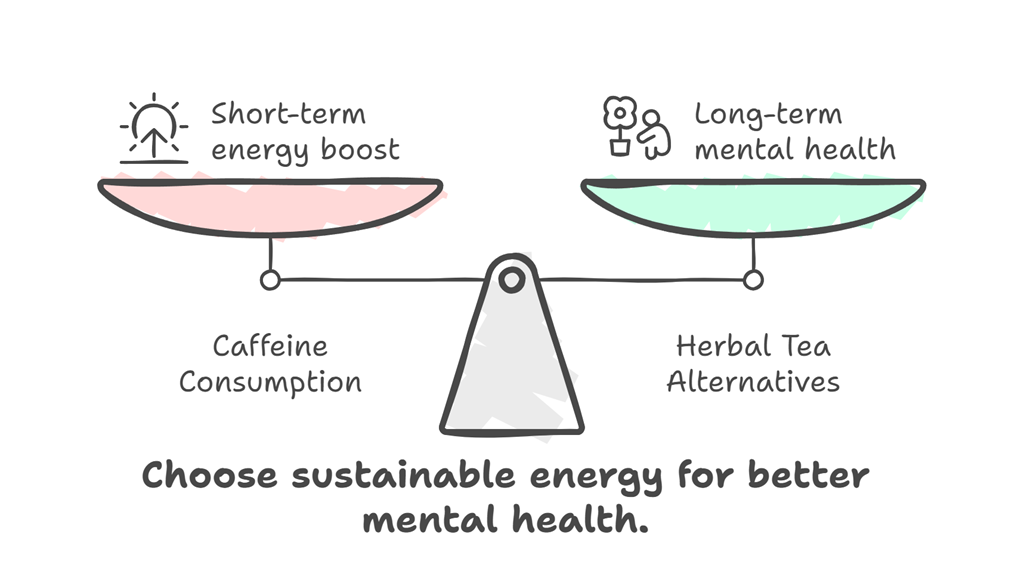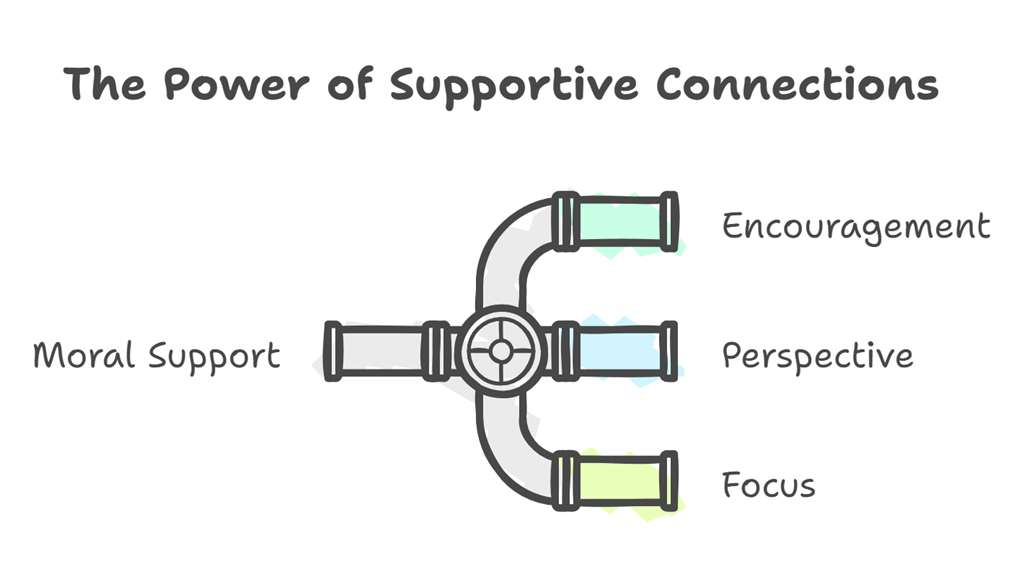Living on freelance jobs can be stressful. Between dealing with difficult clients, the constant worry of running out of work, and the never-ending balancing act of your personal and professional life, there’s a lot to take on.
However, freelancing can be a rewarding way to make a living if you’re prepared for the challenges.
But hey, I’ve been doing this for over a decade. I know a thing or two about handling the stress of freelance jobs, from setting realistic expectations to staying positive in tough times.
I’ll also share advice on setting boundaries, managing your time, and keeping your sanity while working on your terms.

Freelancing Stress Affects Work-Life Balance
1. De-clutter your workspace.
Too many distractions in your environment make it hard to focus on your work.
Clutter can create mental blocks and prevent you from getting creative, so cleaning up your workspace and keeping it as minimal as possible is essential to success as a freelancer.
2. Set realistic expectations for yourself.
No one is perfectly productive all the time, and even experienced freelancers will have days when they feel lousy about their work.
If you expect perfection from yourself every time, both mentally and physically, you’ll never reach your potential as a freelancer.
Instead, set manageable goals for yourself and be willing to accept that you might not hit them every time.
3. Stay organized.
Organizing your tasks and deadlines is critical when you’re working from home. Not only will it help you stay on top of your work, but it’ll also keep you from feeling overwhelmed or behind schedule.
Keeping track of all your email, social media, and other task lists will help keep you on track during busy times and ensure you don’t miss any important deadlines or milestones.
One way to organize your workflow is to use a digital task list. If that doesn’t appeal to you, try using a physical planner in addition to digital tools.
4. Stick to a routine.
Having a regular work schedule makes it easier to focus on your tasks and avoid distractions.
If possible, try to stick with the same hours of the day for daily work and long-term projects (this isn’t always possible, but it can help).
It will also help keep your energy levels up during difficult periods. Set practical targets.

Freelancers Should Have a Work Routine
5. Set practical targets.
Setting realistic goals for yourself if you want to be successful as a freelancer is important.
If your targets are too high, you’ll feel disappointed when you can’t reach them or discouraged by the fact that it took so much harder than expected.
Instead, aim lower but still strive for progress and improvement overall.
6. Take breaks and get some fresh air.
Studies found that regularly taking breaks can help to boost mental productivity by allowing you to switch off your brain for a few minutes.
Doing this is especially important if you’re working on complex or stressful tasks, as the stress of working can lead to increased levels of cortisol in the blood (a hormone linked with stress and anxiety).
Work stress can lead to increased levels of cortisol in the blood (a hormone linked with stress and anxiety).
Journal of Environmental Psychology
Volume 42, June 2015, Pages 182-189
Taking regular breaks will allow your prefrontal cortex, which is responsible for higher-level cognitive functions, such as planning and problem solving, to reboot.
7. Make time for your loved ones.
Freelancing can be a great way to work from home, but it’s important to make time for family and friends.
It’s easy to get lost in the freelancer world and forget about the people who are important to you.
Spending quality time with your loved ones is a great way to recharge your batteries and keep your mind healthy overall.
8. Take care of your mental health.
Use exercises like meditation or mindfulness to relax and focus better on the workplace. These mental exercises are effective in relieving stress and anxiety.
Many resources are available online or through your local community if you’re struggling with mental health issues.
If you are living in the USA, the National Alliance on Mental Illness (NAMI) is a great place to get help. They even have a toll-free helpline.
Be kind to yourself. Accept that you need some time off work and seek help from professionals or friends who know more about self-care.
9. Don’t rely on caffeine too much.
Most people drink coffee for an energy boost, but these habits only make things worse in the long run.
Caffeine is a stimulant, which means it increases energy levels and alertness temporarily. However, over time it can negatively impact mental health by causing fatigue, anxiety, irritability, and insomnia.
Try to limit yourself to caffeine when you need the energy boost but avoid drinking caffeinated drinks throughout the day. Instead, try taking some Tulsi or chamomile tea for a gentle yet effective pick-me-up.

Freelancers Should Limit Caffeine Consumption
10. Set boundaries with clients.
Working from home makes it easy to let your clients become a huge part of your day.
But if the workload is taking a heavy toll on your mental and physical health, it might be time to set boundaries with your clients.
If they’re not respecting your need for time off, explain that you can’t provide the level of service they expect without some breathing room.
And don’t be afraid to speak up–if something feels wrong or unethical in any way, trust that you have the right to say “no!”
11. Get plenty of rest.
Like it sounds, getting enough sleep is vital for your productivity. Lack of sleep can lead to decreased concentration, creativity, and decision-making ability.
In addition, tiredness may make you irritable and prone to making mistakes–not exactly qualities you want in a freelance worker. So, make sure to get your eight hours every night.
12. Get support from others.
If there’s someone in your life who can offer moral support during tough times, call them.
A friend or family member can remind you that it’s still possible to make it as a freelancer even when the going gets tough.
They can also provide important insight into how you feel so that you don’t overthink things and lose focus entirely.

Freelancers Should Create A Support System
13. Stay positive in tough times.
Never give up on yourself, no matter how bad things get when working on your own.
Remember that you’re doing this for yourself and that someday, if you continue to work hard, things will start to turn around.
The Final Words
Freelancing comes with unique stresses, but with the right mindset and strategies, you can thrive. While juggling clients and projects can be demanding, taking care of yourself needs to be the priority.
Do your best work by setting boundaries, sticking to routines, and making time for loved ones. Don’t rely on caffeine or unhealthy habits as crutches. Instead, focus on maintaining work-life balance through proper rest, nutrition, and mental health practices.
When times get tough, stay focused on the big picture and get support from those who believe in you. With resilience, self-care, and a positive attitude, you can manage the ups and downs of freelance work.
Remember that this path requires grit, patience, and perspective. Invest in yourself so that you can continue pursuing your passion on your own terms.


